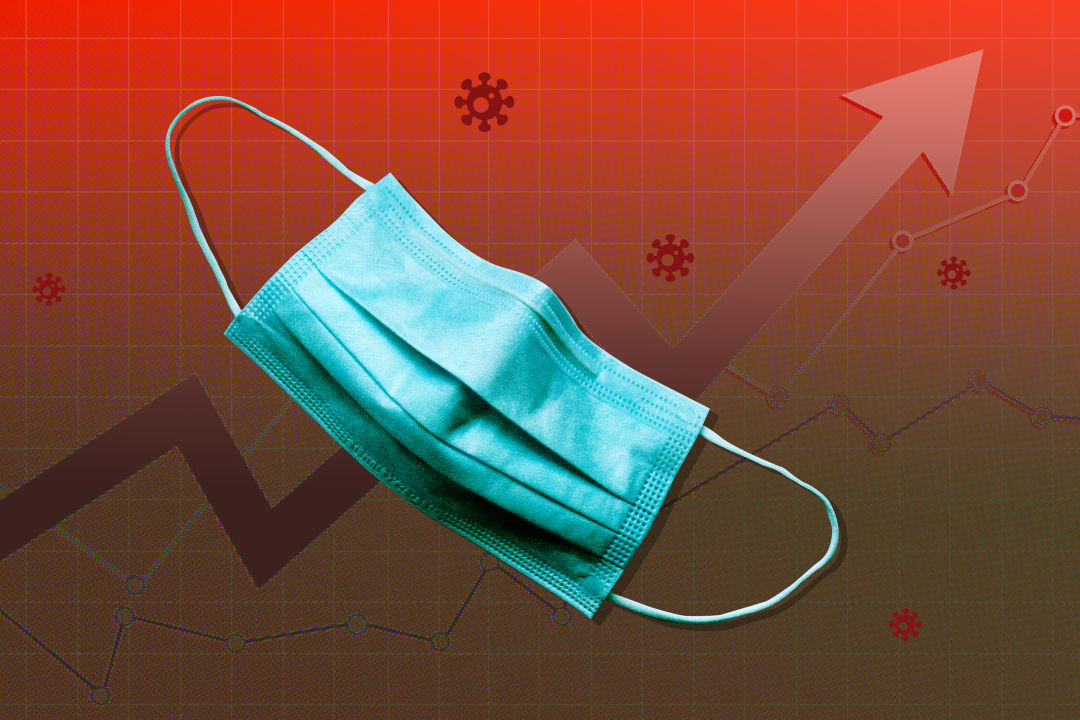XBB.1.5 Is Spreading in the Northeast. What Does That Mean for Oregon?

A new subvariant of omicron known as XBB.1.5, or by the nickname “Kraken,” has gained a foothold in the United States since the new year, during a winter marked by a variety of respiratory ailments in addition to COVID-19. It now accounts for nearly half of US COVID-19 cases, making it the predominant subvariant in the country.
XBB.1.5 is an expert at evading immune defenses, making it “the most transmissible variant that has been detected yet,” said Maria Van Kerkhove, the COVID-19 technical lead at the World Health Organization, in a WHO media briefing earlier this month.
“Evidence suggests that [XBB.1.5] has acquired a mutation that does increase the ability of the virus to stick to cells in our upper airways,” said Dr. Bill Messer, associate professor of molecular microbiology and immunology, and medicine with a focus on infectious diseases in theSchool of Medicine at Oregon Health & Science University.
While XBB.1.5 has been rapidly spreading in the Northeast, its prevalence in Oregon remains low, according to OHSU’s latest statewide forecast. COVID hospitalizations have continued to fall since early January. But the subvariant’s anticipated impact in our state is still unclear, said Peter Graven, director of OHSU’s Office of Advanced Analytics.
If the news about a new variant raises alarm bells for you, you’re not alone. We spoke with Dr. Messer about XBB.1.5, including potential symptoms and how you can protect yourself and others from severe illness.
Portland Monthly: What symptoms does XBB.1.5 cause? How likely is it to cause severe illness?
Dr. Bill Messer: No specific symptom has declared itself as meaningfully different from the kinds of symptoms that we were experiencing with prior coronavirus infections. At this point, there’s no evidence to suggest that it is making anyone more sick than the previous omicron variants. [But] it’s a little too early to say that it is making people less sick.
Scientists have found that XBB.1.5 is really good at evading immunity. How well are current COVID-19 vaccines holding up against this particular variant?
The two important things that we think about in terms of protection is: does it protect you from symptomatic illness or does it protect you from hospitalization? And the bivalent vaccine certainly has diminished efficacy against this strain. However, observational data suggests that that the bivalent vaccines are continuing to protect people from hospitalization.
What precautions would you recommend people take to protect themselves and the community from XBB.1.5?
It's really the same precautions that we always talk about: “cough hygiene,” or covering your mouth when you cough in the crook of your elbow, hand washing, not going to work or to school when you're sick, in addition to mask wearing. And, of course, in the background is vaccinations. It really appears that the bivalent vaccine [booster] still protects against severe illness.
What does the emergence of this new omicron variant mean for the evolution of COVID?
This is one of the most interesting questions about the coronaviruses. Like are we going to see increased diversification? Is there going to be something after omicron that comes along? Or is omicron itself kind of a sweet spot for virus evolution and it's going to continue to evolve within that strain but maybe not make the more dramatic genetic changes that we've seen in the past?
I actually think, evolutionarily, that's unlikely. The virus is evolving in so many places around the globe that it's unlikely to follow the same evolutionary path in every place. So, places that are experiencing higher rates of transmission are also experiencing higher rates of evolution. And so right now, for example, in China, they're having a lot of COVID transmission and there may be a new strain that emerges from that evolutionary incubator.




